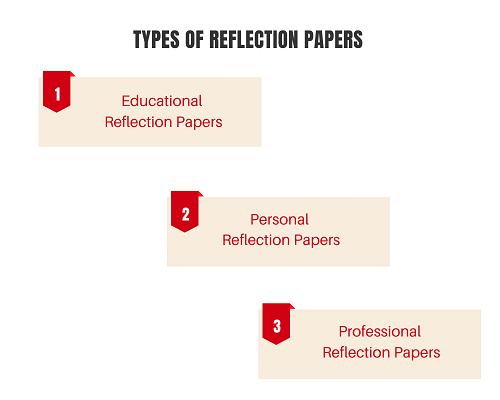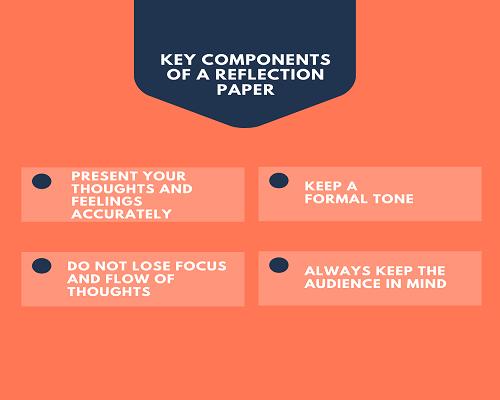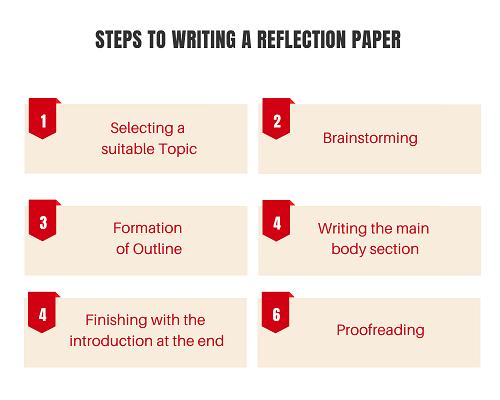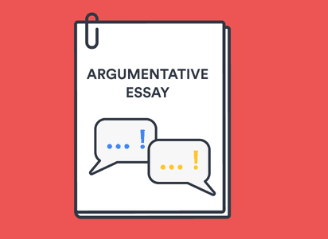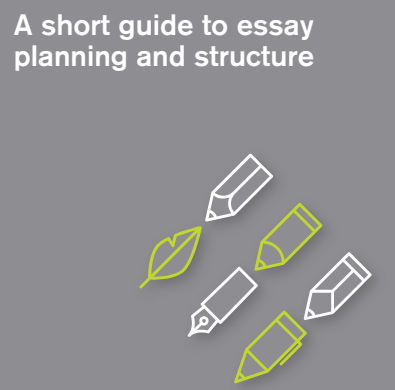A Guide To Reflection Paper And How To Write One!
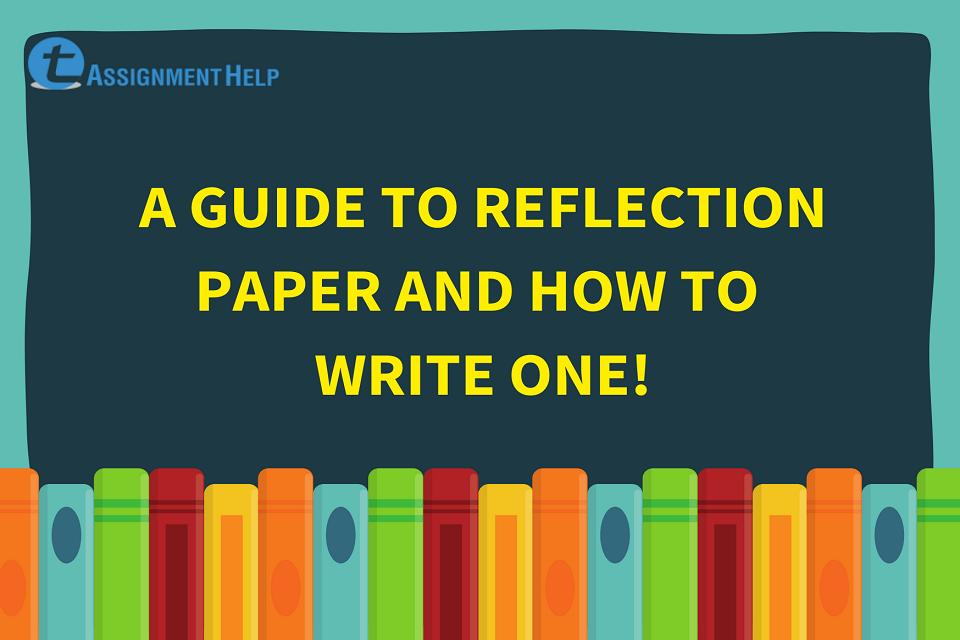
A reflection paper is an essential and distinct kind of academic article. It helps you learn and grow on different levels without external help. Students often wonder how to write a reflection paper or what is the format of a reflection and what is even the point of writing a reflection paper.
In order to put your best efforts into it and maximise what you learn from it, it is very important that you completely understand what a reflective article is, why is it important, what its basic characteristics are before learning how to write a reflection paper.
In this article, you will learn about:
- What is a reflective paper?
- Where is it used?
- Characteristics of a Reflective Paper
- How to write a reflective paper?
So lets us begin!
What is a Reflective Paper?
A reflection paper is a piece of article which lets the author reflect upon their past experiences and activities, and write them down in the format of an academic article. However, one key difference between a regular academic article and a reflection paper is that a reflection paper is written in the first person. As the authors are trying to convey their own thoughts and opinions regarding the event or experience, they have the freedom to utilise the singular first-person perspective in their writing. This enables the reader to connect with the author’s feelings more easily.
Subscribe our YouTube channel for more related videos
In a self-reflective article, the author first takes an in-depth look into their minds and tries to recall each and every detail associated with the event or experience which they have to talk about. After this, the author attempts to portray the event prof their own perspective to help the readers understand the author’s state of mind at the time.
The motive of a reflection paper is to test the author’s critical thinking skills and how they would describe their learning experience through the discussed event. It also helps the author, as there is no better form of learning than the one which comes from within. By having an elaborate look at a past incident, an individual improves their memory as well as their ability to understand things better and create a detailed explanation of the events that unfolded.
A reflection paper has a significant academic significance as it develops critical thinking skills among students and therefore the education systems all across the world have acknowledged its importance by incorporating the task of writing a reflection paper in their curriculum. A student is required to write self-reflective academic articles in the form of short and long essays since high school and even in college and universities in the form of a reflection paper.
A reflection paper can be written on three kinds of subjects:
- Personal :
A personal reflection paper is written on a subject that may be personal to the author. The author has the freedom to select a subject which they would want to express their feeling. It can be an event from the past, such as:
- A reflection paper on learning experience at driving school
- A reflective essay on a hike to through the mountains
- Importance of learning to change a flat tyre
- A reflective analysis of growing your own food
- My first teaching experience: A reflection Paper
The subject chosen for a personal reflection paper should be appropriate. It should have some learning value. In an own reflection paper, it is important to state why chose this particular topic and why it is important to talk about this topic.
- Professional
A professional reflection paper is usually written at a much higher level than high school, it is utilised by the master or graduate students in various fields as well working professionals who are required to improve upon their skills through self-reflection such as a nurse. A professional reflection paper is submitted at the university by students as well as to help one-self learn and develop their skills further.
It is most commonly written by students and working professionals in the field of teaching, healthcare, social work as well as in the field of research. The topic chosen for a professional reflection paper should not be of personal nature, it should address a topic which is pertaining to most people in some way. Such as:
- A reflection paper on working in the Emergency Room during a pandemic
- A reflective essay on uncovering the underground human trafficking ring in Sudan
- Difference between cognitive skills of underprivileged kids and children in Urban areas
- Reflective essay on working with terminally ill patients as a Caregiver
- Reflection Paper on volunteering for relief work during COVID-19 in Melbourne
- Educational
An educational subject for a reflection paper involves topics which are aimed at telling the readers about a particular event or medium from which the readers would learn something of value. An educational reflection paper is similar to a book review, but it can be written on various topics, such as a film, a novel, a seminar, an online workshop or even a class lecture. The main difference between a movie or book review and an educational reflection paper is that in a review the author is an individual who is an expert and knows about movies or books, therefore they are capable of appreciating or critiquing the book in an unbiased manner. Whereas, in an educational reflection paper, the author is by no means claiming to be an expert and is merely present their own thought and opinions and the thing they learnt from that particular subject of the paper. An educational reflection paper may be written on topics such as:
- A reflection paper on the novel Green Mile by Stephen
- A critical self-reflective analysis of war film Saving Private Ryan
- Reflection Paper on European Defence
- A critical reflection on the seminar on String Theory by Mr. Tiedemann
- Reflection Paper on the cinematographic experience of Interstellar.
Each of the above three kinds of reflection papers serves the same motive of helping the reader to have a depth look into the matter discussed and enable the author to learn something of value through looking back at their experience and writing it in their own words.
Every individual, depending upon the nature of the field they are in, will come across each of these reflection papers at some point in their academic and professional lives. Therefore, it is absolutely crucial that students practice and learn everything there is to know about how to write a reflection paper. It is so because, in addition to being an academic objective, a reflection paper will also help an individual to ensure continuous growth and develop the skill of critical analysis among them.
Characteristics of a Good Reflection Paper
Before we get to understanding how to write a reflection paper, it is important to first understand the key characteristics of a reflection paper so that you can best incorporate that into your writing. Below are some of the important characteristics of a Good reflection paper:
- Presents the author’s inner world:
As mentioned earlier, a reflection paper should take the audience on a journey into the author’s mind through descriptive and illustrative writing. Though, it is important not to go overboard and use unnecessary flowery language to exaggerate an event.
- Use the first person
In a reflection paper or essay, in order to best portray your point of view, the use of the first-person perspective is quite common. It helps the author articulate his own thoughts and emotions.
- Keep it formal
However, using first-person doesn’t necessarily mean to have casual approach writing. The writing style needs to be formal and to the point without the use of slang or colloquial terms to describe any event. Be it personal, professional or educational, all reflection papers must be written in formal language with the exception to the rule of using the first person.
- Maintain a flow
While explaining an event in your own words as if you were telling a story, it is common to get derailed from the main topic and add on unrelated and unimportant information in the paper. Always make an outline our events to ensure a proper flow of incidences from one to another in a chronological manner.
- Tailored to the Audience
The same style of writing cannot be suited to everyone when it comes to writing reflection papers. Therefore it is important to have a clear understanding of your audience while writing or learning how to write a reflection paper. It helps you tailor your contents to the reader and provides an opportunity to make it more interesting for the readers in order to keep them engaged.
- Contains the Key components of Gibbs Reflective Cycle
The Gibbs reflective cycle is an impressive model for practical self-learning, which involves six key steps to help an individual reflect upon their past and deduce some value to learn. It varies commonly utilised in the profession of nursing in order to enhance their skills and provide better care to patients. The main components of the Gibbs Reflective Cycle, as mentioned below, should be followed while writing a reflection paper. These components are:
- Description
- Feelings
- Evaluation
- Action Plan
- Conclusion
- Description
- Provides learning value to the reader
In addition to providing a clear description of the event, it is important to give the reading with some learning value of something to think about. It can be any particular point regarding the subject of your reflection paper or something that you learned during that incident.
- Helps the reader in forming a mental representation of the event
It is not necessarily true that what you are writing in your own words may be understood by the readers as well. It is an important aspect of understanding how to write a reflection paper to learn how you main paint a vivid image of the incident in the mind of the reader without the use to too many literary devices and illustrative writing as you would find in a poem or any other fictional piece of writing.
- Must follow the academic format
It is important to always remember that it is at the end of an academic document which you will be submitting to your university for review. Therefore it is necessary to follow the guidelines stated by the university as well as the standard format of an academic paper,
- Provide a conclusion
Just like any other piece of academic writing, it is important to include a conclusion to your reflection paper. Its nature of the conclusion will depend upon on the contents you have penned down in your paper.
How to write a reflection paper?
Now that you know the different usages, types and characteristics of a reflection paper, it is now time to look at various steps involved in understanding how to write a reflectional paper.
Below is a step by step guide, created by our expert writers at Total Assignment Help who have been writing reflection papers and essay for many years and have provided academic assignment guidance to students from different parts of the world, in order to help them succeed.
Let us now look at the steps involves in how to write a reflection paper:
Step 0: Understanding the University Guidelines
It is the preliminary requirement of any academic article. Every university has a different set of parameters on which they grade students, therefore it is important to carefully read and fully understand the specific guidelines described by the university. It will include all of the important points you have to cover, formatting guidelines, help with topic selection and more.
Step 1: Choosing a Topic
It is the first real step of understanding how to write a reflection paper. Once you know what is required by your university, you can start to think of a topic which you feel comfortable with and can recall vividly. Most universities advise students to pick a topic which is quite common and has been known to everyone. For example, to write a review on a book which is included in their curriculum, or to write a reflection paper on an industrial trip they went to last summer as part of their curriculum.
Select a topic which is simple to describe and is easy to relate to.
Step 2: Brainstorming
Writing from memory is not as easy as it may seem in the beginning. In order to write from memory, you must first have a clear image inside your head about the event. To write your reflection paper effectively, it is important to develop the skill of being able to recall past experiences.
Sit in a comfortable position at a quiet spot and just try to remember everything you can about your selected topic or incident. Use the key points described in the Gibbs reflective cycle above to help follow a clear path during this process. Be as descriptive as possible and try to go over the incident multiple times in your head. Noting down each time what you have identified.
Step 3: Forming an Outline
Forming a general outline before writing is important for any piece of academic writing. However, it is even more important when learning how to write a reflection paper. In order to make your reflective article as impressive as possible, it is important to carefully analyse and scrutinise its contents.
Form an outline for the paper keeping the assessment guidelines, brevity, and flow of thoughts in mind. This outline should include key points which are absolutely essential to the paper. Keep a notepad handy and write down the points you would want to include in the paper.
Step 4: Writing the Body Paragraphs
This is an important tip as well in addition to a step in understanding how to write a reflection paper. Write your body paragraphs first as per the outline you made. Make sure each paragraph is concise and follows a chronological flow of thought. The contents of your reflection paper should never be confusing and must use simple language only.
Step 5: Writing the Intro and Conclusion
Lastly, finalise the introduction and the conclusion of your reflection paper. Writing the introduction at the end ensures that it incorporate all of the information and crucial points of the article. It also allows you to look over the contents of the paper once again and make any changes where necessary before moving on to the proofreading and editing step.
There you have it; you have now understood how to write a reflection paper and everything related to it. One last tip which we would like to give you is to read different articles and reflective essays during your free time so that you understand how different people and experienced authors write a reflection paper.
Hope this article helped you in providing some new information about reflection paper and how you can write one to the best of your abilities.
Total Assignment Help
Incase, you are looking for an opportunity to work from home and earn big money. TotalAssignmenthelp Affiliate program is the best choice for you.
Do visit : https://www.totalassignmenthelp.com/affiliate-program for more details
Total Assignment help is an online assignment help service available in 9 countries. Our local operations span across Australia, US, UK, South east Asia and the Middle East. With extensive experience in academic writing, Total assignment help has a strong track record delivering quality writing at a nominal price that meet the unique needs of students in our local markets.
We have specialized network of highly trained writers, who can provide best possible assignment help solution for all your needs. Next time you are looking for assignment help, make sure to give us a try.
Looking for Assignment Help from Top Experts ?
Get the best Assignment Help from leading experts from the field of academics with assured onetime, 100% plagiarism free and top Quality delivery.

